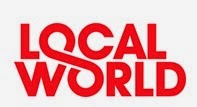Nick Davies, interviewed by Press Gazette: "I think that the bad guys hate me. Is it reasonable to cite this, that [Press Gazette editor] Dominic Ponsford once said to me: ‘I can’t follow up your stories because all our advertising comes from these newspapers'."
Dominic Ponsford in an editor's note to the above: "I can only think that I must have been being largely flippant, or flattering, when I said that, because there was a long time (between July 2009 and July 2011) when Press Gazette was among the very few titles following up The Guardian hacking scandal coverage. As a trade title for all journalists it is true that we are more positive in general about tabloid journalism than The Guardian."
Peter Oborne reviewing Hack Attack in the Telegraph: "There are very few British journalists and politicians who are entitled to reflect on the lessons of the phone-hacking scandal without feeling a sense of profound personal shame."
Will Gore reviewing Hack Attack in the Independent: "Davies may be on the side of the just. But he is as ideologically driven as those he despises. In the end, his real target is neo-liberalism, which 'has reversed hundreds of years of struggle' and undermined the protection offered by democratic governments to ordinary working people. The consequence is that, while it is a great read, Hack Attack’s outlook sometimes feels a little too black and white: you are either with us or against us."
Catherine Bennett in the Observer: "Not for the first time, the public willingness to forget all about Max Mosley is frustrated by Max Mosley's determination to be forgotten about. His latest legal action against Google, for not having suppressed pictures of what the News of the World falsely alleged to be a 'Nazi themed' sex party, has duly renewed interest in records of that historic event and in its host, Mr Mosley, who may now be less well known as the son of the fascist demagogue, Sir Oswald Mosley."
Max Mosley in the Observer: "Your privacy or your private life belongs to you. Some of it you may choose to make available, some of it should be made available, because it's in the public interest to make it known. The rest should be yours alone. And if anyone takes it from you, that's theft and it's the same as the theft of property."
Rodney Edwards @rodneyedwards on Twitter: "John Simpson tells Enniskillen audience that BBC 'grotesquely over-managed', adding: 'All these rough women we have running the place now'."
- N.B. Simpson, according to the Sunday Times [£], claims he said "tough" not "rough."
Media law expert David Banks in the Telegraph on the decision by an Old Bailey judge not to name two councillors who didn't pay their council tax: “This is an example of the way that data protection laws create privacy rights which many ordinary people would say are barmy.”
Prime Minister Harold Macmillan in a personal minute to his minister of defence about Chapman Pincher, who died this week aged 100, according to the Daily Telegraph: “I do not understand how the Express alone of all the newspapers has got the exact decision that we reached at the cabinet last Thursday on space. Can nothing be done to suppress or get rid of Mr Chapman Pincher? I am getting very concerned about how well informed he always seems to be on defence matters.”
Martin Bright in the Mail on Sunday on working for Tony Blair's Faith Foundation: "Blair’s Religion And Geopolitics site was launched last month, and I’m proud of it, despite its omissions. But there was no chance of autonomy for its editor – me. Blair’s increasingly strident position on the world stage clearly is affecting the ability of his charities to work independently. I always found Tony himself engaging, committed and utterly genuine in his belief that we need a better understanding of the role religion plays in global conflict. But something always jarred about the grandness of it all. He doesn’t do humility and nor do his organisations. Perhaps that’s his tragedy. In that strange first interview, I had been asked what I would do if I disagreed with the future direction of the charity. I said that there was only one course of action possible: I would have to resign. So, a few weeks ago, I did."
David Loyn in the Guardian:"Emotion is the stuff of propaganda, and news is against propaganda. Reporting should privilege the emotional responses of audiences, not indulge journalists."
- [£] = paywall










No comments:
Post a Comment